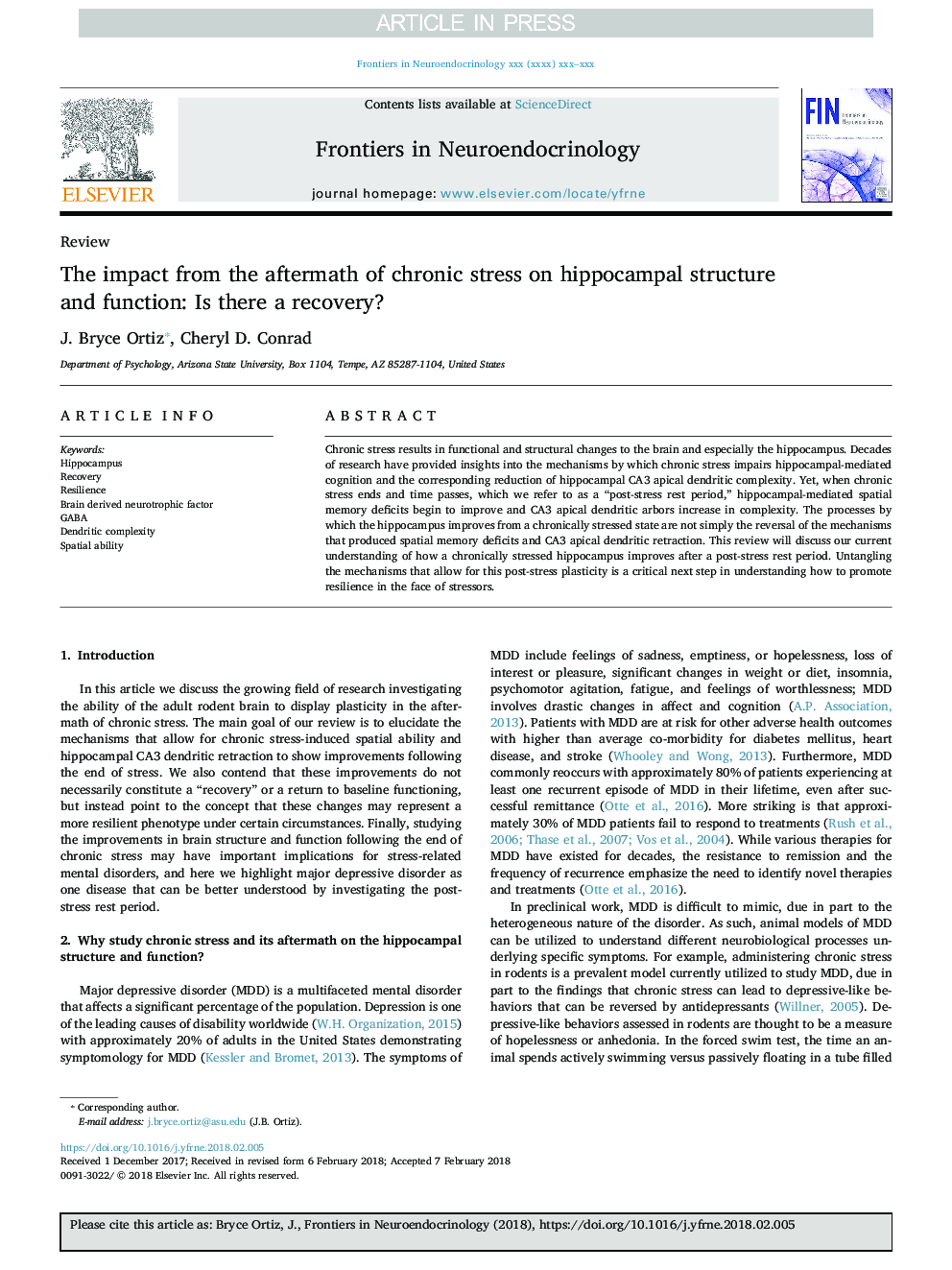| Article ID | Journal | Published Year | Pages | File Type |
|---|---|---|---|---|
| 8630534 | Frontiers in Neuroendocrinology | 2018 | 10 Pages |
Abstract
Chronic stress results in functional and structural changes to the brain and especially the hippocampus. Decades of research have provided insights into the mechanisms by which chronic stress impairs hippocampal-mediated cognition and the corresponding reduction of hippocampal CA3 apical dendritic complexity. Yet, when chronic stress ends and time passes, which we refer to as a “post-stress rest period,” hippocampal-mediated spatial memory deficits begin to improve and CA3 apical dendritic arbors increase in complexity. The processes by which the hippocampus improves from a chronically stressed state are not simply the reversal of the mechanisms that produced spatial memory deficits and CA3 apical dendritic retraction. This review will discuss our current understanding of how a chronically stressed hippocampus improves after a post-stress rest period. Untangling the mechanisms that allow for this post-stress plasticity is a critical next step in understanding how to promote resilience in the face of stressors.
Keywords
Related Topics
Life Sciences
Biochemistry, Genetics and Molecular Biology
Endocrinology
Authors
J. Bryce Ortiz, Cheryl D. Conrad,
